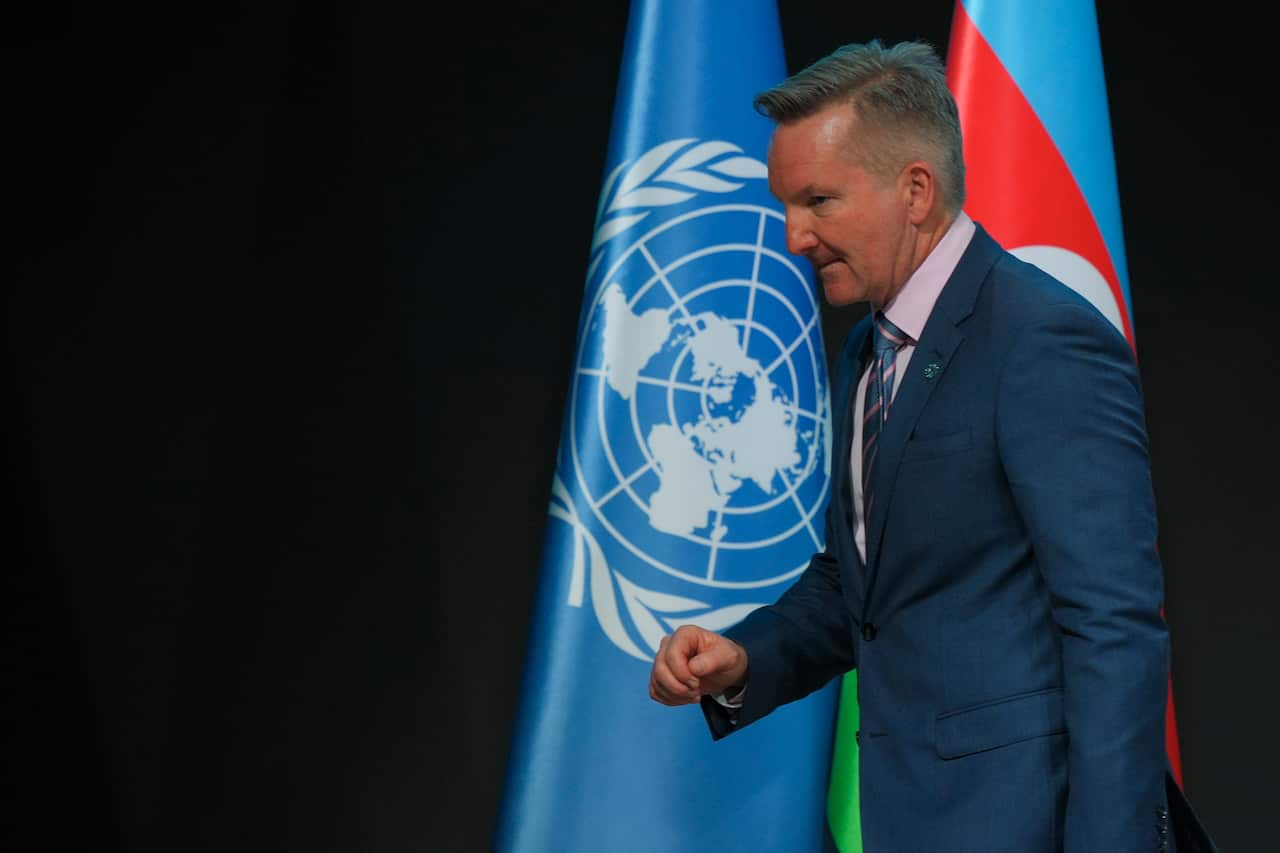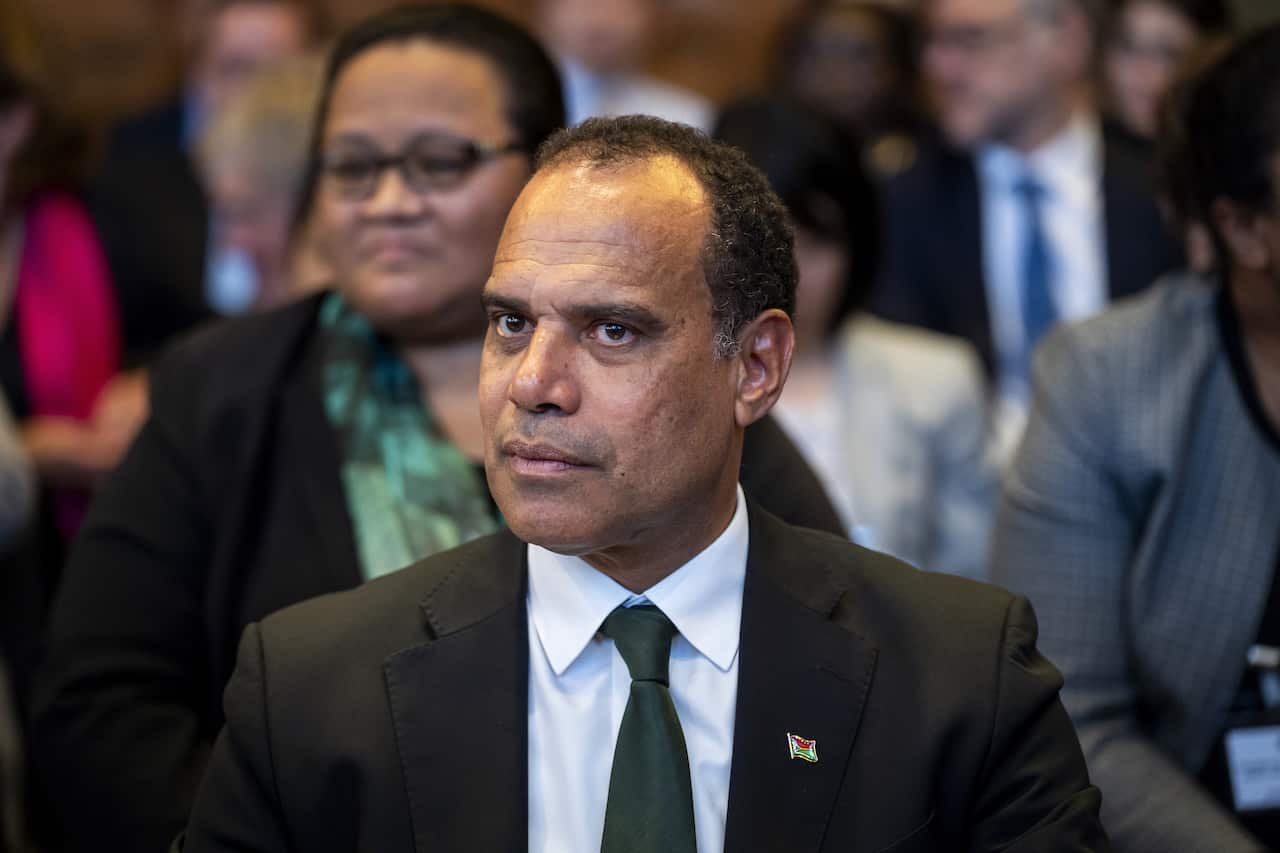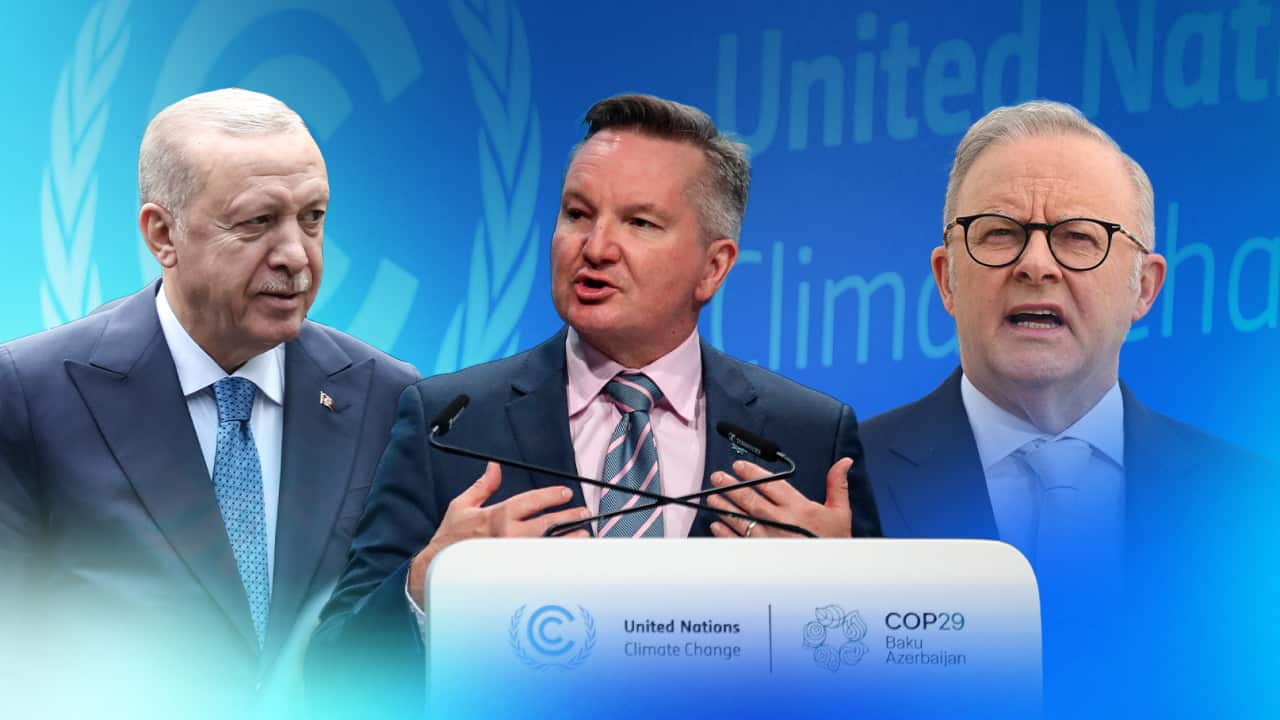Australia is hoping to secure hosting duties for next year's climate summit and establish its credentials as a global middle power amid a security showdown with China in the Pacific.
Prime Minister Anthony Albanese used his first address to the United Nations General Assembly in New York on Thursday to push for Australia's case as host.
During his address, Albanese called for member states to work together to address global challenges, including climate change and the end of wars in Gaza and Ukraine, and he launched a bid for a temporary seat on the UN Security Council.
In contrast to United States President Donald Trump, who this week called climate change "the greatest con job ever perpetrated on the world", Albanese labelled it an "existential threat".
The Albanese government has been lobbying Türkiye to drop its rival bid for the 31st UN Climate Change Conference (COP31), with Climate Change and Energy Minister Chris Bowen caught talking to the country's first lady, Emine Erdoğan, at a climate event in New York.
Wesley Morgan, research associate at the UNSW Institute for Climate Risk and Response, said hosting the COP31 summit would be significant and help Australia revamp its image.
Morgan believes it would signal that Australia is transitioning from "our past as a fossil fuel heavyweight to our future as a clean energy superpower", although it comes amid the backdrop of the federal government's new emissions reductions targets that some experts labelled inadequate.
So what would hosting COP31 entail, and what would it mean for Australia?
Why is hosting COP31 significant?
Morgan said if Australia is successful in its bid to host the UN climate summit, "it will be the single biggest diplomatic summit that Australia has ever hosted".
COP summits are attended by politicians, scientists, policymakers, academics and organisations from the 197 countries that have signed the UN Framework Convention on Climate Change (with the European Union the 198th signatory).
Co-hosting with the Pacific, Australia would be the president of the UN climate talks from the start of the two-week negotiations in late 2026 until the beginning of the next negotiations in 2027.

This entails guiding global discussions on how to reduce emissions and implement commitments to transition away from fossil fuels and mitigate the impacts of climate change.
Simon Bradshaw, COP31 lead at Greenpeace Australia Pacific, said sharing hosting duties with Pacific neighbours is critical as they have a long history of providing leadership on climate action and best understand what's at stake.
"Communities throughout the Pacific are already dealing with very severe coastal erosion, more intense storms, pressures on water and food security, in some cases, even risks of permanent displacement," he said.
What would hosting mean for Australia?
The summit would provide an economic boost for the hopeful host city of Adelaide, with a record 80,000 registered to attend COP28 in Dubai in 2023.
More importantly, it would attract investment for Australia's clean energy transition and signal the country is addressing a key security threat to its Pacific partners.
"This is crucially important because 70 per cent of the investment in Australia's renewable energy outlay is international investment," Morgan said.
"So hosting the UN climate talks is really a chance to set up Australia to be a clean energy superpower and to develop those clean energy industries of tomorrow."
Bradshaw agrees Australia can be at the forefront of building new clean industries as the world increasingly shifts away from fossil fuels, exporting various minerals and renewable energy components.
"If done right, in an environmentally responsible way, it could mean we have not only a prosperous future economy here, but have made a really positive contribution to lowering emissions globally," he said.
However, he admits co-hosting will be a "real test for Australia", which will have to advance a clean energy agenda while focusing on its own problem of phasing out coal and gas.
"Because unless we're really tackling that root cause of the problem [phasing out fossil fuels], we're not showing any real climate leadership," he said.
Climate threat key to Australia-China showdown in Pacific
In recent weeks, Albanese has failed to finalise security pacts with both Vanuatu and Papua New Guinea.
Australia needs to be seen as addressing climate change if it wants to remain the Pacific Island countries' security partner of choice, Morgan said.
"Particularly at a time when island nations are signing new security agreements with countries like China, and for their part, Pacific Island countries, they're crystal clear that they see climate change as their single greatest threat," he said.
Bradshaw said decisions like extending the life of Woodside's North West Shelf gas project damage Australia's credibility as a climate leader.

It drew immediate criticism from the Pacific, with Vanuatu's climate change minister, Ralph Regenvanu, putting Australia on notice, stating it was in breach of its international obligations.
Regenvanu pointed to an International Court of Justice ruling pursued by Vanuatu — which found countries have legally binding obligations to prevent and combat climate change — and can be held liable for loss and damage.
In a video call to the UN Climate Summit on Thursday, China's President Xi Jinping committed the nation to its first carbon emissions reduction target, vowing a cut of 7 to 10 per cent by 2035.
The announcement demonstrated the US as an outlier on the global stage, with Trump withdrawing from the Paris Agreement at the beginning of 2025.
Are climate summits still fit for purpose?
The 2024 summit hosted by petro-state Azerbaijan was widely criticised for including current and former oil and gas executives on its committee.
An open letter signed by prominent figures — including the former UN secretary-general, a former UN climate chief and numerous climate experts and advocates — called for the UN to reform the host selection process and labelled it "no longer fit for purpose".
Both experts said the summits remain crucial to ensuring global efforts to address the climate crisis.
The Paris Agreement — a commitment to stop global temperatures from warming more than 1.5C above pre-industrial levels — was finalised at COP21 in 2015.
"Australia has just set a new 2035 target to meet our Paris Agreement obligations. So we will be cutting emissions by between 62 and 70 per cent by 2035, and you know, cooperation in this form is the only way that we will tackle the climate crisis," Morgan said.
While Bradshaw acknowledged the negotiation process is painfully slow, he argues it supports vulnerable countries, makes sure they are getting adequate finance and ensures "everybody has a voice".
For the latest from SBS News, download our app and subscribe to our newsletter.

